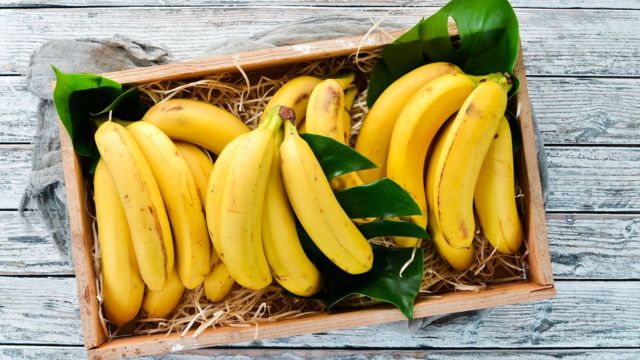Banana: A Friend or Foe for Weight Management?
Bananas are a popular fruit choice for many people around the world. They are known for their delicious taste, portability, and natural sweetness. However, when it comes to weight management, there is often confusion about whether bananas are friends or foes. In this article, we will explore the nutritional benefits of bananas and their role in supporting a healthy weight.
1. Nutritional Profile of Bananas
Bananas are rich in essential nutrients that are important for overall health. They are a good source of dietary fiber, vitamin C, potassium, and manganese. A medium-sized banana contains about 105 calories, making it a relatively low-calorie fruit option. It also has a low fat content, making it a suitable choice for those watching their weight.
2. Fiber Content in Bananas
One of the key reasons why bananas can be beneficial for weight management is their high fiber content. Fiber is known to promote feelings of fullness and reduce appetite, which can help with portion control and prevent overeating. A medium-sized banana contains about 3 grams of fiber, which is about 10% of the recommended daily intake. Including bananas in your diet can help you feel satisfied and reduce the likelihood of snacking on unhealthy foods.
3. Energy Boost from Bananas
Bananas are a great source of natural energy due to their carbohydrate content. They contain both simple and complex carbohydrates, which provide a quick energy boost as well as sustained energy throughout the day. This can be particularly beneficial for those who engage in regular physical activity or exercise. Consuming a banana before a workout can provide the necessary fuel to perform at your best.
4. Potassium for Weight Management
Potassium is an essential mineral that plays a crucial role in maintaining a healthy weight. It helps regulate fluid balance, supports muscle function, and aids in the metabolism of carbohydrates. Bananas are a rich source of potassium, with a medium-sized banana containing about 400-450 mg of this mineral. Including bananas in your diet can help maintain proper electrolyte balance and support overall weight management.
5. The Glycemic Index of Bananas
The glycemic index (GI) is a measure of how quickly a food raises blood sugar levels. Foods with a high GI can cause a rapid spike in blood sugar, leading to increased hunger and cravings. Bananas have a moderate GI, which means they are digested and absorbed more slowly, resulting in a gradual rise in blood sugar levels. This can help prevent sudden hunger pangs and promote stable energy levels throughout the day.
6. Portion Control and Moderation
While bananas can be a healthy addition to a weight management plan, it is important to practice portion control and moderation. Eating too many bananas in one sitting can contribute to an excess calorie intake, which may hinder weight loss efforts. Aim to include one medium-sized banana as part of a balanced diet that includes a variety of fruits, vegetables, lean proteins, and whole grains.
In conclusion, bananas can be considered friends for weight management when consumed as part of a balanced diet. They are packed with essential nutrients, high in fiber, and provide natural energy. The potassium content in bananas supports fluid balance and muscle function, while their moderate glycemic index helps maintain stable blood sugar levels. However, it is important to practice portion control and moderation to avoid excessive calorie intake. So go ahead and enjoy a banana as a healthy snack or addition to your meals while pursuing your weight management goals.



